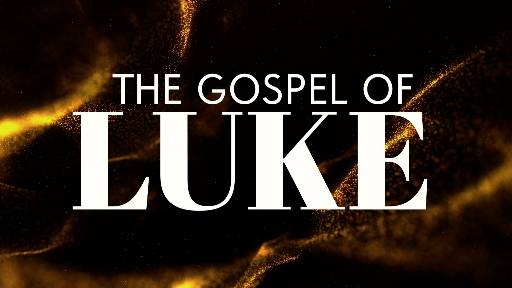-
"The Parables Of Contrast: Matthew 13”
Contributed by Clarence Eisberg on Jul 19, 2023 (message contributor)
Summary: Most scholars believe Matthew was written between 70 and 85 A.D. (C.E.) He combines the 7 parables to explain the reality of why "good" exists along side of "evil". (movie Sound of Freedom) an example. Why are believers even in the church failing?
In Jesus Holy Name July 23, 2023
Text: Matthew 13:24,31 Pentecost VIII – Redeemer
“The Parables of Contrast: Matthew 13”
Last Sunday I began with Matthew 13:1-2. Matthew tells us that Jesus was sitting by the sea. A large crowd gathered around him to hear him speak or see him perform a miracle. “The Sea of Galilee was one of His favorite places to preach to large crowds by using a boat as His podium. The water was a sounding board and the sloping hills and curving coves were people sat was a natural amphitheater.” (Jesus A Theography p. 177) So Jesus climbed into a boat that was anchored at the shore. He sat down and spoke many things to them in parables.
This parable of the Seed and Sower is the first in a list of seven stories Jesus told in Matthew 13. “A farmer went out to sow his seed.”
“The kingdom of heaven is like a man who sowed good seed in his field, but the enemy came and sowed weeds.” Matthew 13:24
“The kingdom of heaven is like a mustard seed which a man took and planted in his field.” Matthew 13:31
The “kingdom of heaven” is like the woman who mixes yeast with her flour.” Both parables explain that the gospel will grow and succeed.
“The kingdom of heaven is like a treasure hidden in a field.” Matthew 13:44
“The kingdom of heaven is like a net that is let down into the lake and caught all kinds of fish.” Matthew 13:47 All kinds of people are coming into the Christian community.
Most scholars believe that the Gospel of Matthew was written after the fall of Jerusalem between 70 and 85 A.D. Matthew is writing to an audience of Jewish and Gentile Christians who are troubled by the destruction of Jerusalem and the resulting chaos. They are wondering why evil exists along with good. They see the evil in our world and the pain people inflict on one another, even in the church. Why doesn’t God do something? We know God is loving and holy. So why does He hold back His hand of justice? Why does He permit so much wrongdoing and suffering?
Matthew uses these parables of Jesus to explain why the “word” of Jesus, the “seed” of the gospel, the message of His resurrection is not accepted by all. These parables provide answers to Christian hearts, minds and communities in the 70 & 80’s after the fall of Jerusalem.
Each parable begins with “the kingdom of heaven”. In Jesus’ day the Jews knew the prophecies in Daniel and Ezekiel and they were expecting a conquering hero. Each time Jesus used the phrase, “the kingdom of heaven” His words stirred memories of bright banners, glittering armies, the gold and ivory of Solomon’s day, the nation of Israel restored. Zealots stood at the edge of Jesus’ audience, armed and well organized guerrillas spoiling for a fight to kick out the Romans, but to the disappointment of Judas and others like him, Jesus did not give the signal for a revolt . (Philip Yancy “The Jesus I Never Knew” p. 241) In his disappointment Judas hangs himself.
To the crowds dismay, (see John 6:14) it became clear that Jesus was talking about a different kind of kingdom. The Jews wanted what people have always wanted from a visible kingdom: a chicken in every pot, full employment, a strong army to deter invaders. Jesus announced a kingdom that meant “serving others”, taking up a cross of obedience, and loving your enemies. By the time Jesus was nailed to the cross everyone had lost hope and fallen away.
The parables of Jesus are everyday images of farming, fishing, women baking bread, merchants buying pearls. Consider the mustard seed, so tiny it can fall to the ground and lie unnoticed by human beings and birds alike. Given time, though the seed may sprout into a bush that overtakes every other plant in the garden. God’s kingdom works like that. It begins so small that people scorn it and give it no chance for success. His kingdom began with 12 men, a few women, not more than 120 people. (Ibid p. 246)
What then did Jesus mean when He used words like: “The kingdom of heaven”, “the kingdom of God”? People who looked at Jesus as their political savior were constantly confused by His choice of companions. He became known as a friend of tax collectors and uneducated fishermen. He elevated the role and position of women in society, including spending time in the forbidden Samaritan village. The real Messiah would not do such things. That is what the Pharisees and people thought.
One day in early spring the kingdoms of political power and religious power confronted Jesus and His kingdom face to face. Herod and Pilate had legions of soldiers to enforce Roman rule. Jesus wore a crown of thorns from one and a “gifted” purple robe from another.

 Sermon Central
Sermon Central

